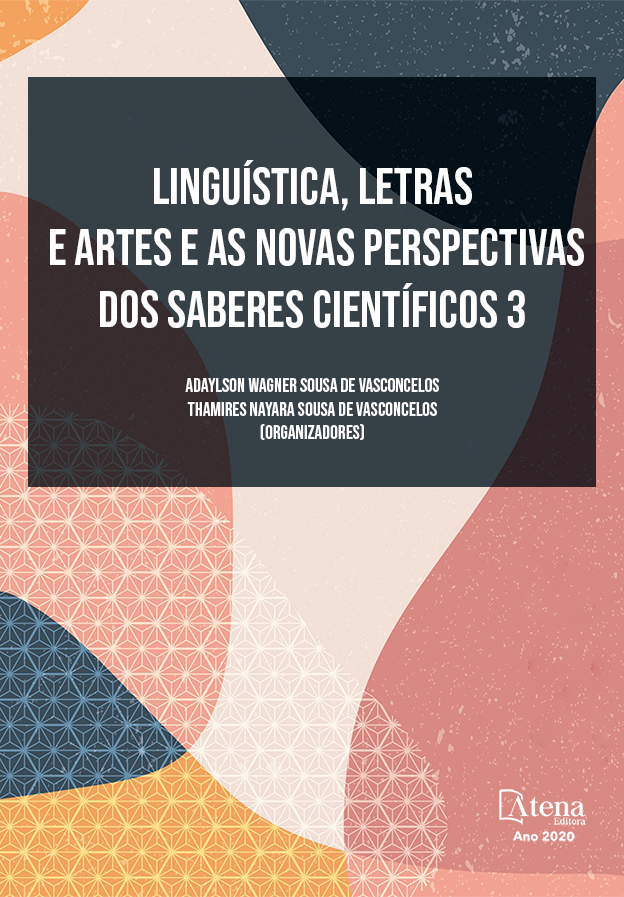
O ALTEAMENTO VOCÁLICO E A RELAÇÃO DE ESTIGMA E DE IDENTIDADE NO FALAR DOS URBANITAS BAIONENSES
A presente pesquisa baseia-se nos pressupostos teórico-metodológicos da sociolinguística variacionista laboviana e trata do alteamento da vogal média /o/>/u/ em posição tônica e pretônica no falar dos baionenses da zona urbana. Objetiva a verificar os condicionamentos desta variação e levar a reflexões a respeito de identidade, estigma, lançando luz sobre um problema social: o preconceito linguístico. O embasou-se teoricamente em Câmara Jr. (1970), Labov (2008), Callou e Leite (1990), Rodrigues (2005) e Campos (2008). O corpus para análise se deu através de entrevistas, realizadas com 48 informantes do município de Baião/PA, da zona urbana os quais geraram 1895 dados do fenômeno em questão. O processamento dos dados deu-se pelo programa computacional Goldvarb, o qual apontou um percentual de 48% para presença de alteamento e 52% para ausência dele com significância de .31. Os resultados apontaram 7 grupos de fatores relevantes para explicar a regra de alteamento, os linguísticos: a)monotongação face à não monotongação; b) natureza da consoante do onset; c) natureza da coda; d) posição do grupo de força; e também os extralinguísticos como a) sexo; b) escolaridade; c) faixa etária. Do ponto de vista social, o fenômeno em questão parece não estar fortemente ligado a mecanismos de configuração de estigma, pois os que fazem uso dessa variante são tanto pessoas não escolarizadas como também as escolarizadas tomando como referência a escolaridade média 54% com peso relativo de .53, o que merece certa cautela por tratarmos conjuntamente o alteamento em duas posições: tônicas e pretônicas, que podem ter diferentes usos pelos falantes.
O ALTEAMENTO VOCÁLICO E A RELAÇÃO DE ESTIGMA E DE IDENTIDADE NO FALAR DOS URBANITAS BAIONENSES
-
DOI: 10.22533/at.ed.6452007123
-
Palavras-chave: Sociolinguística. Variação. Vogal média. Alteamento.
-
Keywords: Sociolinguistic. Raising. Variation. Mid vowel
-
Abstract:
The present research is based on the theoretical and methodological assumptions of the Labovian variation sociolinguistics and deals with the raising of the mid vowel /o/>/u/ in tonic and pretonic position in the baionenses from the urban zone’s spoken Portuguese. It aims to verify the conditions of this variation and lead to reflections on identity and stigma, shedding light on a social problem: linguistic prejudice. The theoretical basis included research by authors such as Camara Jr. (1970), Labov (2008), Callou and Leite (1990), Rodrigues (2005) and Campos (2008). The corpus for analysis took place through interviews, carried out with 48 informants from the urban area of the municipality of Baião/PA, which generated 1895 data on the observed phenomenon. Data processing was carried out using the software Goldvarb, which indicated a percentage of 47.7% for the presence of raising and 52.3% for its absence with a significance of .31. The results showed that only 9 (nine) factors were considered relevant to explain the raising rule, among them are the linguistic ones (a) monotongation compared to non-monotongation; b) nature of the onset consonant; c) nature of the coda; d) position of the force group; and also extralinguistic ones such as a) sex; b) education; c) age group. From the social point of view, the phenomenon in question is not strongly linked to mechanisms of stigma configuration, since those who use this variant are both people with no schooling and those with schooling, taking as reference the average schooling 54% with a relative weight of .53. Among other factors, the raising is governed by factors of an extralinguistic nature, since no factor of this nature has been excluded, showing that they are extremely relevant for the realization of the phenomenon under study.
-
Número de páginas: 20
- Divalda Mendes Rodrigues Pontes
- BENEDITA MARIA DO SOCORRO CAMPOS DE SOUSA


